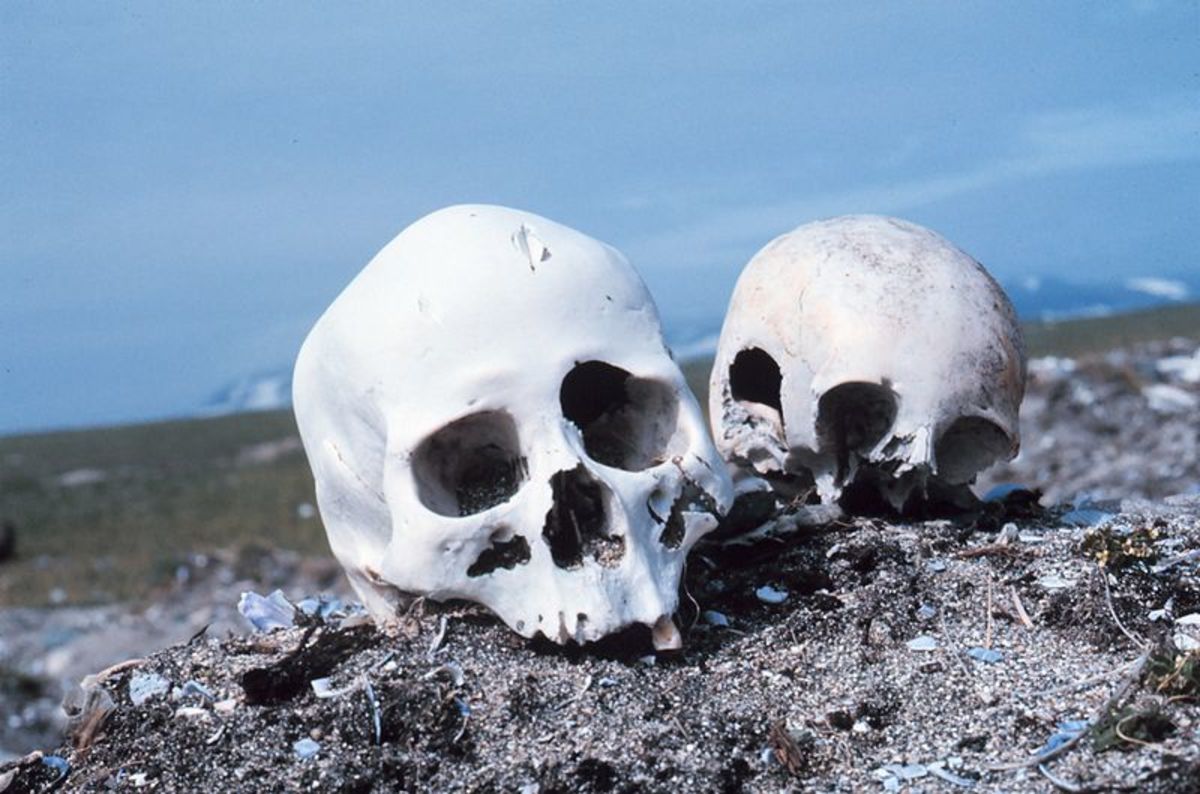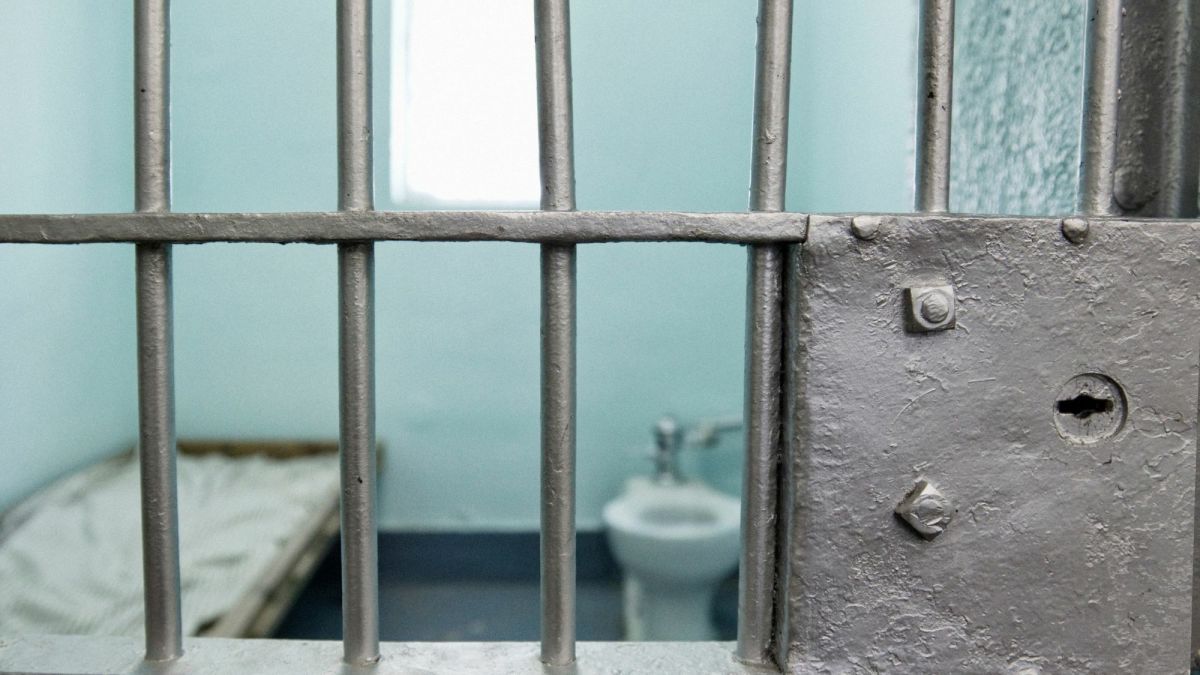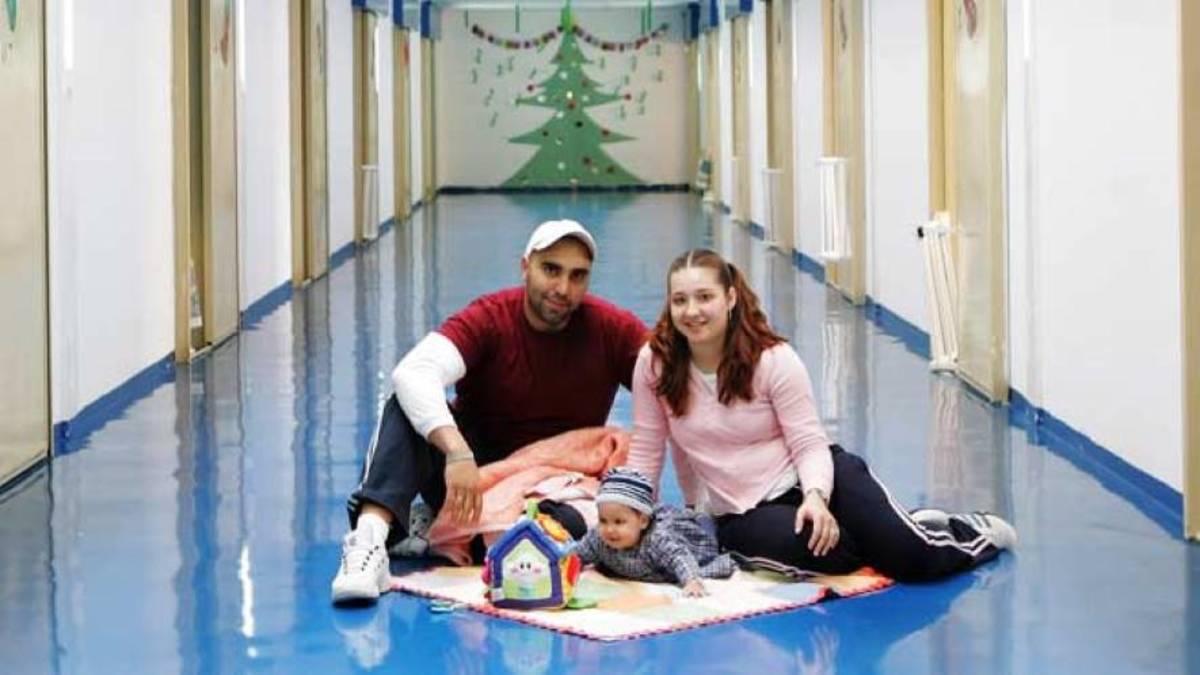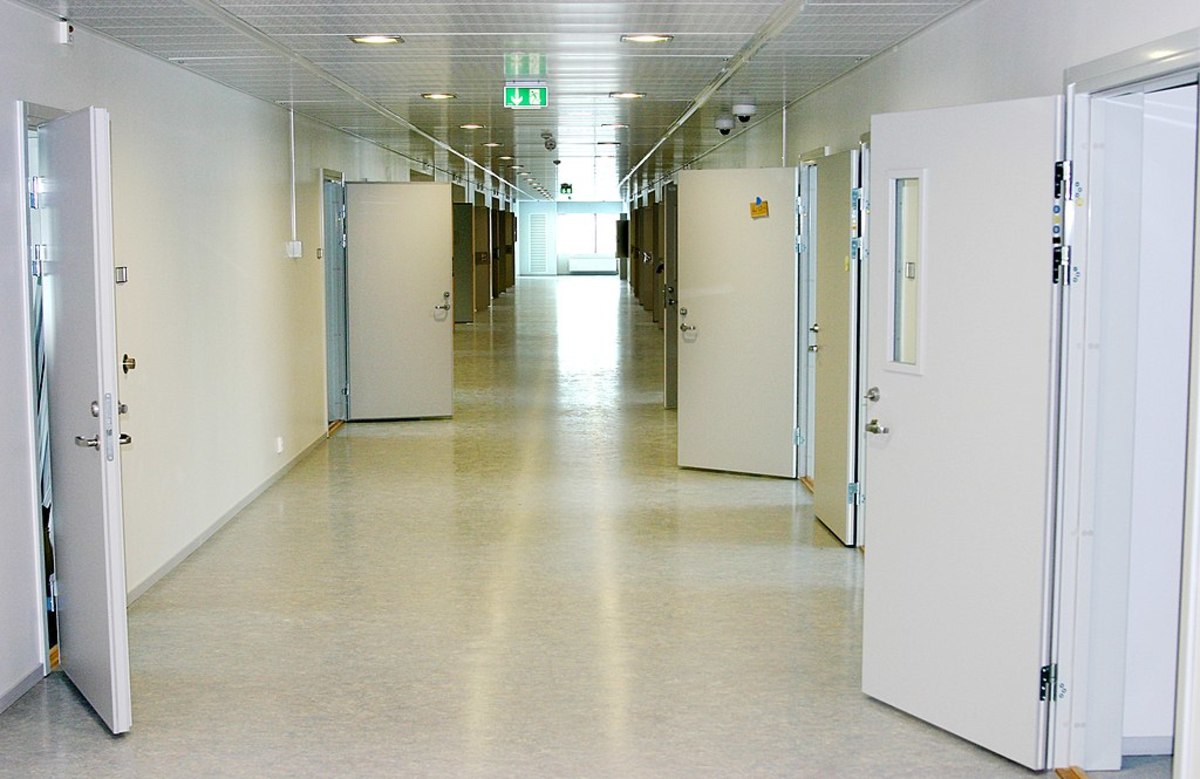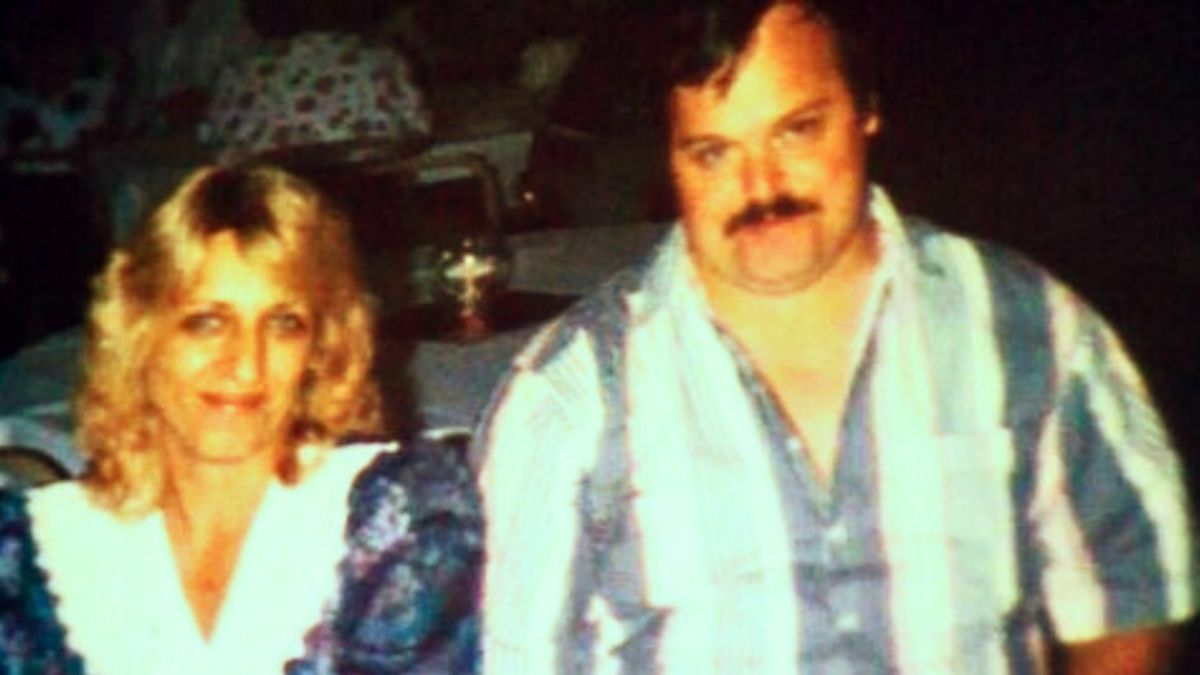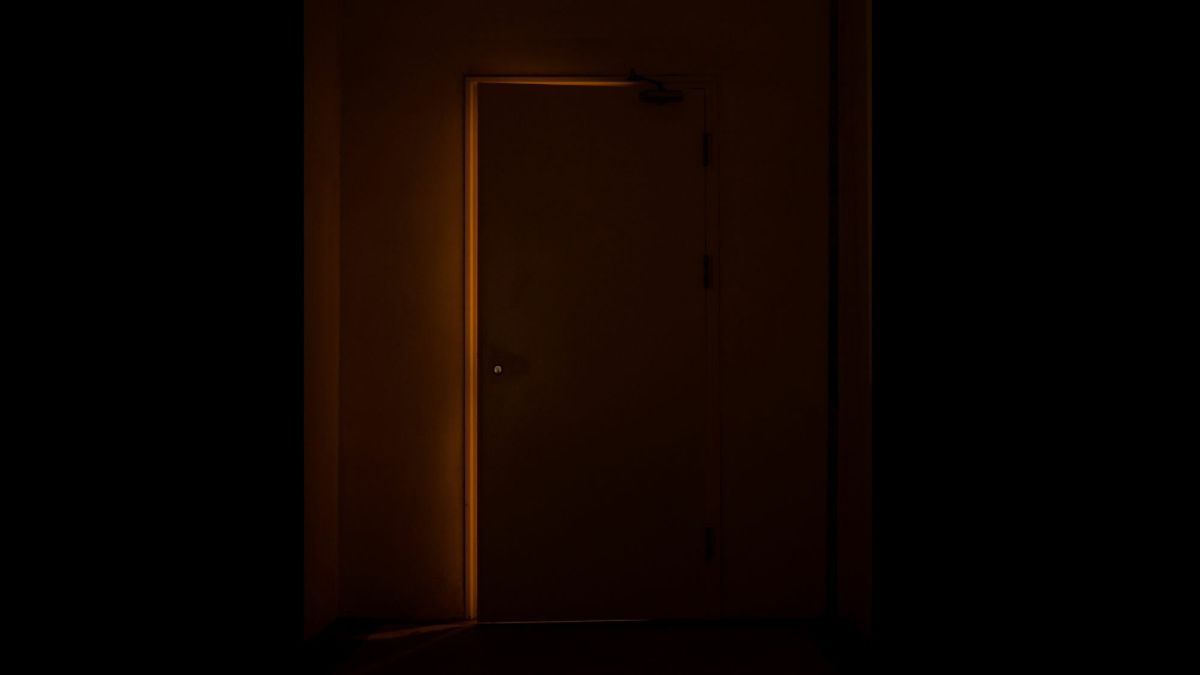Jail Bait?
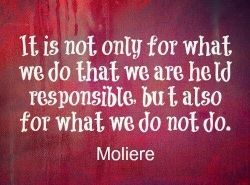
Comments on Crime, Corruption, and "Corrections"
This lens began as a centratlized place for me to "coslidate" some of the things I have posted elsewhere.
I'm new to Squidoo - and have other things to do, so please be patient while I learn how this site works and what I really want to use it for. I welcome suggestions, comments, and feedback.
Hokey Pokey?
Costly "corrections"
California is often said to have one of the largest economies in the world - even without counting its largest and most profitable agricultural crop (which is still mainly grown "illegally") - and yet, the State is broke (and in debt)!
Other than agriculture, one of the largest industries in California is "Corrections" (and "Rehabilitation"). Like "Defense", there always seems to be plenty of money available for those able to get a government contract. Perhaps the only "industries" expanding as much are obesity and diabetes.
California locks up more people than any other place on the planet.There are more people in California prisons than the entire population of many countries! Many of those released are only done so in order to make room for new people to take their place. With more inmates than can fit in even overcrowded facilities, many inmates are transferred to other states.
In places like Ohio, "half-way houses" are now considered one of the most profitable and highest and best uses for property a real estate investor can make. The State pays per bed per day - whether anyone is in it or not. A typical house can accommodate 12 inmates.
Imprisoning people is expensive - in more ways than one. Many places around the country are looking for ways to fund their costs. An increasingly popular idea is to charge the inmates themselves.
Incarceration has never paid (or repaid) a "debt" to society. More often than not, forcible confinement just creates (more) debt - and more problems than it ever solves. Our current punishment-based "justice" system is increasingly expensive and ineffective as either a response or a deterrent to most "crime".
Prevention, restitution, and making things "right" would be far better for all than locking so many up. Making prisoners pay for their confinement is less of a "solution" for reducing costs to the public than reducing the total number of inmates and the need and reasons for anyone being confined in the first place. The punitive "corrections" industry is very profitable - for those who run it.
In addition to being compensated (per person/per day) by public/government funding for those "housed" in their facilities, prisons (and related programs) often benefit from exploiting essentially free inmate labor. Indentured servitude might be more "acceptable" if a "debt" was actually paid (to the "victims" and/or "society") and those released were not still punished for life.
Focusing on extracting payment from prisoners will only encourage and perpetuate prisons (and related programs) to be run as businesses for profit - and the likelihood that more people with financial resources will find themselves targeted as future sources of income.
In China, people are locked up for minor violations and are at risk of being executed, having their families billed for the bullet, and their body organs being sold by for transplantation as a source of income for the prison. The U.S. now imports almost everything from China. I do hope this will not be next....
Business is Booming
Putting People Behind Bars
The United States of America "houses" the most "inmates" in the world: As many as 1 in 100 American adults are behind bars - and NOT to serve alcoholic beverages as a profession. More than 49 BILLION dollars was spent nationally on "corrections" last year, which is more than six times the amount spent on higher education. Perhaps "no child left behind" is being applied in ways not originally intended, since both per capita and in raw numbers the United States locks up more of it's people (with 2.32 million people incarcerated in jail or prison) than any other country. That's not even counting those/others we imprison elsewhere (out of the country).
Not surprisingly, the ("Great"?) State of Texas has the highest number of people locked up. What's so "great" about that?
My home state of California currently has about 171,000 people behind bars at any one time (since many are released just to make room for new arrivals). In 2008, California spent $8.8 BILLION on those locked up. In 2009, the State (taxpayers) paid over $10 billion just to house prisoners - which is more than was spent on education - for everyone else in California (not yet locked up).
Unless there is significant change in how we, as a society, deal with crime, punishment, and the release of people back into the general population, the number of both inmates and expenditures on them is predicted to exponentially increase this year and in the future.
In the '70s and '80s, California had 2,600 guards for its 20,000 inmates. Now there are 45,000 guards (10% of whom earn over $100,000 a year). Almost every election there is a call for more police and more prisons to be built. Prisons are now a big (profitable) "business" (that not only charge the public enormous sums to keep "undesirable" people away from them, under lock and key, but all too often also have created "competitive" industries built upon what could be considered legalized slave labor). Prison guards (who sometimes choose their profession for the relatively high pay, low entry requirements, and job "security") now have one of the biggest, most influential political lobbying groups.
Building prisons and paying to fill them is NOT, in my mind, a good use of tax dollars or any other "resources" essentially "lost" in the process. I think we don't need more police or prisons; we need to talk to each other! We need to get to know each other, participate more, and take more responsibility for ourselves, our children, our neighbors, those we do business with, and our society as whole.
If we take care of the "little" things (like repairing broken windows, potholes and other signs of neglect or disrepair) we won't have to deal with so many "big" things (like gangs, muggings, drive-by shootings, and car-jacking) later. Just picking up litter and painting over all graffiti as soon as it appears is a sign to all that the certain behavior is not acceptable/tolerated. We need to individually and collectively establish ("higher") standards, abide by and enforce them ourselves.
This does NOT imply in any way reducing our "rights" or "freedom"; quite the opposite. It would make us feel "safe" enough to look for the "good"/what's "right" in people/situations instead of the "bad"/what's "wrong". It would also encourage people to "tell the truth", "do what's right" and be able to just "fix what's wrong" without being punished for it. We must welcome and support "positive intervention" by others.
Our current laws, expectations, and "norms" have taken almost all "authority" and "power" away from parents and teachers - and made it highly unlikely that any "stranger" would "correct" a child or assist a person in need, let alone prevent or try to correct a "crime". We now live in a society based on, controlled by, and at the mercy of fear; fear of almost everything and everyone.
Fear is the anticipation of pain. It is being afraid of getting hurt or not being able to handle something - that has not yet happened. It is the experience of potential future pain in the present. "Terrorism" is the state of being afraid of the "threat", NOT what anyone actually does or what actually happens. No matter how terrible those may be, people can deal with/handle those. It is the not knowing, the anticipation of something more terrible than what is real that causes problems - and makes people so easily controlled/manipulated. Our own government is as responsible for terrorism as any fanatical group of people plotting to cause harm. We must stop being so afraid and only preparing for the "worst". A "free" society must also look for, encourage and expect the "best".
ONE way to reduce the number of "prisoners"/"convicts" is to create a place for them in society - both before and after whatever they are punished for. Instead of "punishment", how 'bout having them fix, repair, replace, improve or in some way "make up" for any harm, damage or problem they may be responsible/accountable for? How 'bout providing an expectation that they are important, wanted and have something positive to contribute - and be expected to do so!
It is not possible to imprison, deport, or banish those we do not like. They don't ever really go away. There isn't really anywhere for them to go. Unlike some cultures, we don't just chop of someone's hand and let them go. We don't choose the 3-5 things that we REALLY don't like and publicly execute a FEW people in a way that "deters" almost ALL crime for years at a time. No matter how harsh the conditions of the prisons in many other countries, many foreigners fear American prisons more. Here the punishment is not just physical confinement or even physical abuse/torture, it is also often worse psychologically and extends to the person's family, friends, and associates - and often "follows" them for the rest of their lives once they are "released".
Laws & Labels
Legal Lingustics
A "crime" is anything that is against the "law" (as written/at the time). Obviously, what is considered a crime has more to do with what the law is than what someone actually does. You can't legislate morality or human behavior. All you can really do is set "consequences" for "undesirable" things that people are going to do anyway - like driving faster than whatever the "speed limit" is at any particular place.
A "felony" is basically any "crime" that is punishable by death or imprisonment of one or more years. The term came out of English common law. Punishment for conviction of committing a felony originally meant a forfeiture of all property, death, long imprisonment and/or banishment. Crimes punished by incarceration for 5 days or less are considered "misdemeanors"; and crimes punished between 5 days and a year are usually termed "infractions".
The crimes most commonly considered/associated with felonies in the United States include: murder, manslaughter, suicide, (grand) theft, robbery, burglary, embezzlement, racketeering, fraud, rape, arson, kidnapping, "aggravated" assault and/or battery, espionage, treason, and various drug- and "deadly" weapon-related "offenses" involving possession, manufacture, sale/distribution, or usage.
The same charges (and punishment) can apply not only to those who commit a "criminal" act, but also to those who are "guilty by association": those accused of aiding and abetting a "criminal" before, during or after a "crime" -- and those who just happen to either be at the wrong place at a wrong time or have some relationship/association with others that implies (but does not actually prove) that they may be somehow "guilty" (of something).
With the exception of small claims courts (and "family" or business-related disputes), most laws/"crimes" in this country are "prosecuted" in terms of the "State" versus the accused/defendant. There is almost never any "victim restitution", "making things right" or "justice". The focus is almost always entirely on determining "guilt" and punishment.
Law enforcement and the term and/or type of punishment for those "convicted" is far from "equal"/uniform/consistent in this country. A person's name, neighborhood, occupation, financial resources/social connections play as big a role as skin color, education, reputation or even (legal) representation in determining who is accused at all, let alone of what, or the punishment sought. The nature of the "alleged" crime or likelihood or extent of actual involvement is all too often secondary.
People are all too often categorized and "labeled" - before, during and after anything they do. Unlike many languages, English is based upon nouns. We ask what someone DOES and they usually reply with what they ARE. Once a noun, rather than an adjective or verb is used, the "label"/description tends to stick and stay static/not change - at least in most people's minds. People also tend to get very emotional and irrational about some words/labels/descriptions - without ever thinking about whether they are accurate, let alone whether or not they "tell the whole story" or "paint the whole picture". People use the "label" as a "shortcut" - and think they (already) know all they need/care to. We have enough prejudices to overcome already without our language creating more/unnecessary/harmful ones.
As long as we have "laws", there will be "crimes". Few, if any, people are actually "criminals". They are merely people who have committed a crime. They are often not even "bad" people; just people (who are essentially "good") who have done "bad" things. I do NOT necessarily "condone", overlook, or even "forgive" undesirable behavior/acts, but I do suggest we separate/distinguish between the person and the deed - in our language, minds, and "criminal justice"/"corrections" system.
Our prisons are based upon "penitentiaries" - conceived of as a place to do "penance". Prisoners are supposed to be "reformed" - and can even obtain a "certificate of rehabilitation". Few are released outright without some kind of "parole" (or "probation"). Nowhere in our PENAL or "corrections" system is the idea that people can REALLY "change". They are "ex-felons" - for life. They must disclose this to everyone.
We say, "don't do the crime if you can't do the time", but most people don't realize that their "debt to society" is almost never considered "paid". "Justice" is almost never "served". Any "felony" is considered the same as another - and few "former guests of the state" are ever even asked what they were convicted of/punished for. And, of course, no one cares or believes them if they say they didn't really do anything wrong to begin with. They are considered as having an "untreatable contagious disease for which they must be quarantined". They are not really ABLE to reenter, "return" or integrate back into society. It is not so surprising, then, that so many are repeat "offenders". If someone is called and thinks of themselves as a "criminal", "felon" or "offender", putting an "ex-" in front doesn't make it go away or change anything.
We don't say, "she's an ex-axe murder" or a "former mistake maker" or a "pervious bad doer". We almost never say what the person DID (or was punished for) as separate from who they ARE. We act like past actions define who and what they are forever more. The test scores or grades you got in school really have little to do with what you know or can do in real life - especially years later. Nouns and labels keep people stuck. Acknowledging past choices, behavioral tendencies and weakness is fine, but defining someone as an "addict", "alcoholic" or "felon" is just an excuse to keep them stuck as one forever. We must look for ways to help people continually move "forward", "upward" or "toward" something positive - and use their "negative" experience(s) as an "asset" to learn and draw from (instead of an anchor keeping them stuck/in place, slipping "backward" or spiraling "downward".
This is also true for labels like "homeless" (or more accurately, in most cases, "houseless"). It describes only someone's living situation (or status), not the person - or what they could offer if given help or an opportunity, no matter what the circumstances or how "chronic"/long-term they have been living a certain way.
When asked "on air" what I call people, I replied, "their name(s)". If I was concerned about their past or present situation, I would ask them about it. Unlike many people, I'd actually be quite comfortable with a person who had "done time" for "murder". It could be because of my military background, or it could be because, the vast majority of actual murders are, literally one-time events, committed by someone close to the victim. I'd figure they already killed the person they wanted to - and might not even be as much "risk" as someone who's still building up to it. All I really care about is whether I can "trust" them. I have ZERO tolerance for lying! Again, words are "things", and they matter!
In politics, there is a lot of talk about "term limits". Unfortunately, there is no "statute of limitations" on "identity labels". A title "earned" stays with that person for life - which may be why even a Presidential Pardon does not EVER expunge the record or labeling of an "ex-felon".
Financial bankruptcy stays on someone's record for 10 years, yet they are not ever referred to as a (ex-) "bankruptee" - regardless of how much they owed or why they didn't pay their creditors. A bank robber on the other hand will always be called that - even if no weapon was used and little or no money was actually taken.
Politicians are often "caught" lying, cheating or having been involved in a sex "scandal". Yet few people would be concerned about them living next to them. However, if two teenagers are regularly having sex, as soon as one reaches the age of 18, it is considered a "sex crime": statutory rape. All that matters is age. If "convicted", the new "adult" would be labeled (and forced to "register") as a "sex offender" -- and have residence and employment options/locations both limited and publicly listed/posted FOR LIFE. Nobody will ask or care how the label was acquired or if it fits.
Child abduction warnings on the highway give no indication of the real situation. If two teenagers decide to leave a supervised "group home" without permission, the one driving is considered as "abducting" the other. It is seldom a "child molester" (or even a parent without legal custody) stealing a baby or "helpless" child "against their will". People really need to STOP, think and ask before assuming/reacting.
The Gangs's All Here
In many places, a "gang" is considered just 3 or more people in one place. Who they are or why they are there isn't really important (if you don't like something about them). This is actually just a way to restrict public assembly. It has little to do with reducing the undesirable activities that gangs often engage in. The attraction of a gang to begin with is the unconditional acceptance and support given those who belong. If society were to provide the same feeling of "belongingness", of being wanted (and having consequences for trying to leave), and the perception of having REAL opportunities to live a desirable lifestyle, (most) gangs would have NO (more) appeal.
Interestingly, professional "organized" crime is almost given a "pass" - and even admired. Far more "unaffiliated" individuals are punished as "criminals" than those with "connections". This may encourage people to join gangs and crime "families" rather than figure out a "better way" on their own. "Gangster rap", crime novels and police shows wouldn't be so appealing if people had a more positive vision of what life would be like without crime - and actually believed and worked to make it possible. There are a lot of very creative people trying to figure out how to "beat the system". I think the "system" needs to figure out a way to incorporate and make use of their talent(s) and ambition(s).
Regardless of the almost unending need for more people, we seem to prefer to pay people with little to no skills from other countries to help us (do even the most basic things) in places like Iraq and Afghanistan. Neither those behind bars or those who have been released are eligible or wanted to fill the positions that no one else will even take. A "felon" might be the perfect person for many jobs. It would be an opportunity to relieve the stress on our military and our prisons, to create examples for both our country and others of positive uses people could be put to, and allow the "former felon" to earn both freedom, respect and a new more positive "label". I'm not advocating giving everyone a rifle and letting them loose. I'm just suggesting that they be allowed the same opportunity to "earn" their place in society that we offer immigrants.
We need to totally rethink our adversarial legal system and replace "crime prevention" with "societal enhancement" or something positive that we work FOR instead of just AGAINST. When a person takes, breaks or in any other way harms something or someone, we must think about what would best make things "right". An "eye for an eye" just makes everyone blind. That's how I see it.
I welcome YOUR comments, questions and suggestions.
New Models Needed
What is "criminal"? What is "justice"? In our current system, both have to do with LAW, FINANCE, and, most of all, PUNISHMENT. The problem is that it does NOT work as a "deterrent" or a "response" for most "offenders". Most people in jail and prison and not "motivated" (to learn) best by avoiding pain. Many often do not even consider consequences of their actions. Employing attractive "Incentives" (especially having to do with of status, power, and respect) that rewarded desired behavior and allowed the fulfillment of more immediate desires would be far more effective - for the majority of people committing EITHER "blue-" and "white-collar crimes".
While groups may be involved, most "offenses" are committed by individuals - who do not recognize societal laws as being relevant or applicable to them. Punishment mainly just teaches them to NOT get caught (next time). A better approach would be providing and rewarding them for meeting their needs and satisfying their desires in ways that do not harm or unfairly take advantage of others. Can this be done? Yes! But our political, economic, legal, social (and even religious) systems of rules, regulations, and (Eternal) Truth as it is proclaimed to be must first allow enough flexibility to integrate world views and perspectives that differ if it is to function for all.
Just Say No?
Non-violent drug offenders make up 50% of those in California prisons. Saying "no" to drugs has not worked. Prohibition has never worked for us/U.S. Forty years ago, there was virtually no recidivism in California. Today 75% of prisoners released will be back behind bars within 3 years. The major difference is vocational training and the flow of money. Californians increased parole sanctions, prison time for non-violent drug offenders, and a Three Strikes law that can put people away for life for spitting on the sidewalk.
Studies around the world show that there is no increase in drug use when laws are more liberal. No matter how strict or how lax drug laws are, roughly the same percentage of people use drugs - regardless of the law!
When liquor is sold (legally), those selling it ask (everyone) for identification for proof of age. Drug dealers don't ask kids for ID when they sell them drugs. In many neighborhoods, it's harder to get liquor than it is to get (other) drugs. The War on Drugs has failed. We can't control drug use with laws. Legalizing and taxing marijuana makes more sense (socially and economically) than supporting drug cartels (and locking up their customers) by making it illegal. Legal prescription drugs are in many ways a bigger problem than most of the drugs we declared war on.
I do NOT advocate nor condone drug use - but I think drugs are not a problem. In fact, they are often an "answer" or "solution" to problems not addressed (in other ways). Instead of saying "no" to others so much (from early childhood on) - and emphasizing what we do NOT desire - perhaps we'd (ALL) be better off saying "yes" (to life!) and focusing (almost exclusively) on what we would prefer to create. Paradise or Prison Planet. It's our choice.
Recidivism
The word "recidivism" is often defined as a tendency to relapse into a previous condition or mode of behavior; especially: relapse into "criminal" behavior.
"Recidivism" means literally "a falling back" and usually implies "into bad habits". It comes form the Latin word recidivus, which means "recurring" and itself came from the verd recidere, a composite of the prefix re- and cadere ("to fall") that means "to fall back". "Recidivists" tend to relapse, or "fall back", into old habits and particularly crime. "Deciduous" and "Incident" are two other English words that have roots in cadere. "Deciduous" comes from the verd decidere (De- plus cadere), which means "to fall off". And "incident" comes from incidere (in- plus cadere), meaning "to fall into".
Penal Colonies
Prison Planet
Among the worst social punishments are ostracism, banishment, and exile.
A penal colony is a settlement used to exile prisoners and separate them from the general population. Unlike a regular prison, a penal colony tends to be placed in a remote location (like an island or distant colonial territory) - where the wardens or governors have absolute authority.
Penal colonies are often little more than slave communities - and penal labor is commonly used in a state's economically undeveloped territories.
Both criminals and those trapped in indentured servitude or some similar arrangement were sent to far away penal colonies to prevent escape and to discourage returning after their sentence expired. Even prisoners not sentenced for the rest of their "natural" lives often died from hunger, disease, medical neglect, being overworked, or while attempting to escape. Penal colonies were often located in inhospitable frontier lands where their unpaid labor benefited colonial governments (more than having to pay immigrant workers). It is still not uncommon for otherwise unemployed poor people to be sentenced to trivial or dubious offenses to generate cheap (and thus very "profitable") penal/prison labor for the state.
The British used North America (prior to the American Revolution), Australia (after the early 1780s), Bermuda (during the Victorian period), India, and Singapore as a penal colonies. Over 50,000 British convicts and indentured servants were transported and auctioned off to plantation owners upon arrival in the American colonies. Convicts represented one quarter of all British emigrants to colonial America during the 18th century. Much of the Australian labor for road building, farms, and government projects would not have been possible during the 19th century without deporting advocates of Irish Home Rule and trade unions to Norfolk Island, Van Diemen's Land (Tasmania), and New South Wales. During the Second Boer War (in South Africa), Boer prisoners-of-war were sent by the British to prisons on smaller Caribbean islands. Andaman and Hijli were two of the most infamous penal colonies in colonial India. Indian convicts were sent to Singapore to clear jungles for settlement and early public works.
France sent criminals and dissidents to tropical penal colonies, including Louisiana (in the early 18th century), Devil's Island in French Guiana (1852-1939), and New Caledonia in Melanesia (in the South Sea).
Argentina's southernmost city, Ushuaia, was founded as a penal colony - as were the Falkland (Maldivas) Islands (during the 1800s).
Millions of Russian and Ukrainian dissidents were sent to Kazakhstan as punishment for disobeying the Communist Party line. The Soviet penal settlement made Kazakhs an ethnic minority in their own country until the collapse of the Soviet Union. Both Imperial Russia and the Soviet Union used Siberia as a penal colony for criminals and dissidents - due to its remoteness and harsh climate. In 1857, a penal colony was established on the island of Sakhalin. The Gulag and its tsarist predecessor, the katorga system, provided slave-type penal labor to develop forestry, logging, and mining industries, construction enterprises, as well as highways and railroads across Siberia.
Mexico currently uses Isla Maria Madre (in the Maria Islands) as a penal colony. A state official is both governor of the island as well as chief judge. The military command is independent of the government and is exercised by an officer of the Mexican Navy. The other islands are uninhabited.
The United States uses the Guantanamo Bay detention camp (on Cuba) as a penal colony to maintain and interrogate prisoners outside U.S. legal jurisdiction.
Chain Gangs
A chain gang is a group of prisoners chained together to perform menial or physically challenging work, such as mining, timber collecting, building roads, digging ditches, or chipping stone, as a form of punishment, societal restitution for the cost of housing, feeding, and guarding prisoners, no cost labor for government projects, reducing inmate idleness, serve as deterrent to crime, and satisfying needs of politicians to appear "tough on crime".
Prior to 1955, chain gangs were mainly used in the southern United States before being phased out nationwide. Alabama was the first state to revive them in 1995 but the experiment (in "commercial slavery") ended after about a year in all states except Arizona, where in Maricopa County inmates can still volunteer for a chain gang to earn credit toward a high school diploma or avoid disciplinary lockdowns for rule infractions.Rather than chipping rocks or other non-productive tasks, Arizona's modern chain gangs do work of economic benefit to the correctional department and provide free work on county and city projects - thus lowering taxes and raising the standard of living for the local population. Opponents note that the gangs often work outside in oppressive desert heat and that chaining people together is often inefficient and unsafe. In Sheriff Joe Arpaio's jail there is no "discrimination" and women have complete "equality" - in the form of female chain gangs of their own. The 2,000 prisoners housed in Arapaio's controversial tent city jail sometimes must endure outside temperatures well over 110 degrees and as high as 138 degrees indoors. To any who complain, the Sheriff reminds them that "It's 120 degrees in Iraq and our soldiers are living in tents too, and they have to wear full battle gear, but they did not commit any crimes, so shut your damned mouths!"

